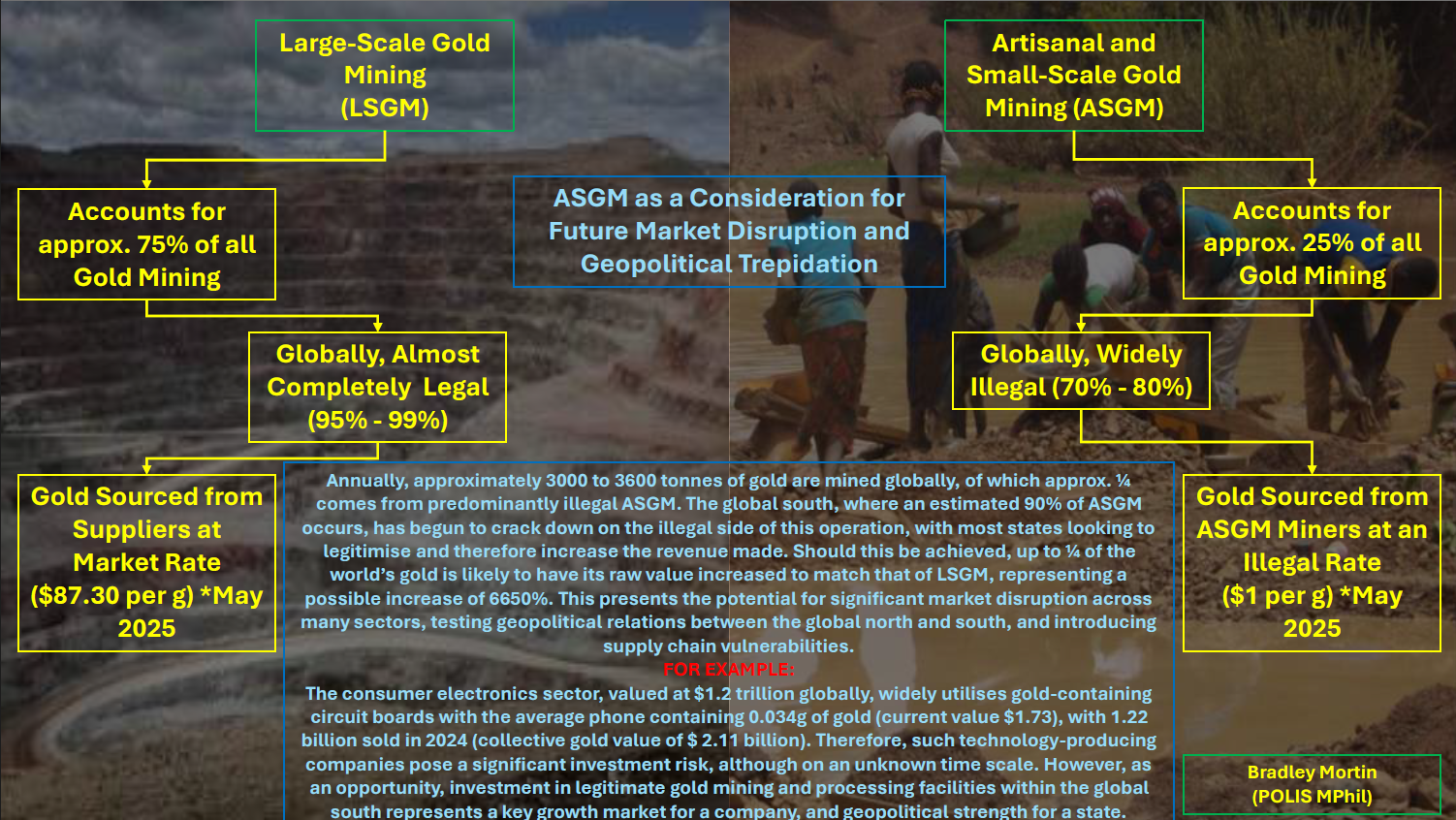Artisanal and Small-Scale Gold Mining (ASGM) as a Consideration for Market Disruption and Geopolitical Risk
By Bradley Mortin

Presentation Abstract
Artisanal and Small-Scale Gold Mining (ASGM) accounts for approximately 25% of all global gold mining, with an estimated 80-85% of ASGM conducted illegally. Gold sourced from illegal ASGM can be bought for as little as 1 USD per gram, as opposed to 87.3 USD per gram for gold mined as part of legal Large Scale Gold Mining (LSGM), which accounts for the remaining 75% of the market.
Lost value through illegal ASGM is estimated to be between 49.4 and 52.5 billion USD annually, with many gold-producing countries, almost exclusively located in the Global South, feeling the brunt of this lost revenue. Currently, any significant profit made from ASGM comes in the latter half of the gold supply chain, in places such as the UAE, where refinement takes place and the output is legitimately sold on to international buyers at a premium, before further significant value is extracted at the manufacturing and retail phases of the chain. Seeing this imbalance in the logistics chain, many countries in the Global South have begun to legitimise their ASGM sectors and build domestic gold refineries. This change holds the potential to impact existing international investment models and shift concepts of geopolitical and geoeconomic risk management, affecting not only supply chains but global gold prices and associated manufacturing sectors too, from consumer electronics to defence. In one calculation, using data from Chatham House and the World Gold Forum, should ASGM seek greater parity with LSGM value, then 25% of all globally mined gold could see a 6650% increase in value/ cost.
The stated shift in the practices of global gold mining presents both risk and opportunity across a broad spectrum of economic and political areas, from the potential for financial loss and reward, changes in Environmental, Social, and Governance (ESG) practices, and the possibility of changes to soft power dynamics.
About the Author

Bradley Mortin is a PhD Candidate at the Department of War Studies, King’s College London, focusing his research on the Geopolitics of Collective Intelligence in the context of the NATO alliance.
He obtained a BA (Hons) and MA in Intelligence and International Relations from the University of Staffordshire, an MSc in Cyber Defence and Information Assurance from Cranfield University, and an MPhil in Politics and International Studies from the University of Cambridge.
In addition to his academic research, Bradley works for the UK Ministry of Defence as a Geopolitical Advisor and Intelligence/ Security Lead.
Bradley’s participation in the 2025 Mackinder Forum Prize in Geopolitical Risk Analysis came as part of a continuous development sabbatical where he attended the University of Cambridge. His future goals centre around his PhD research and opportunities for geopolitical risk analysis and intelligence publication.
